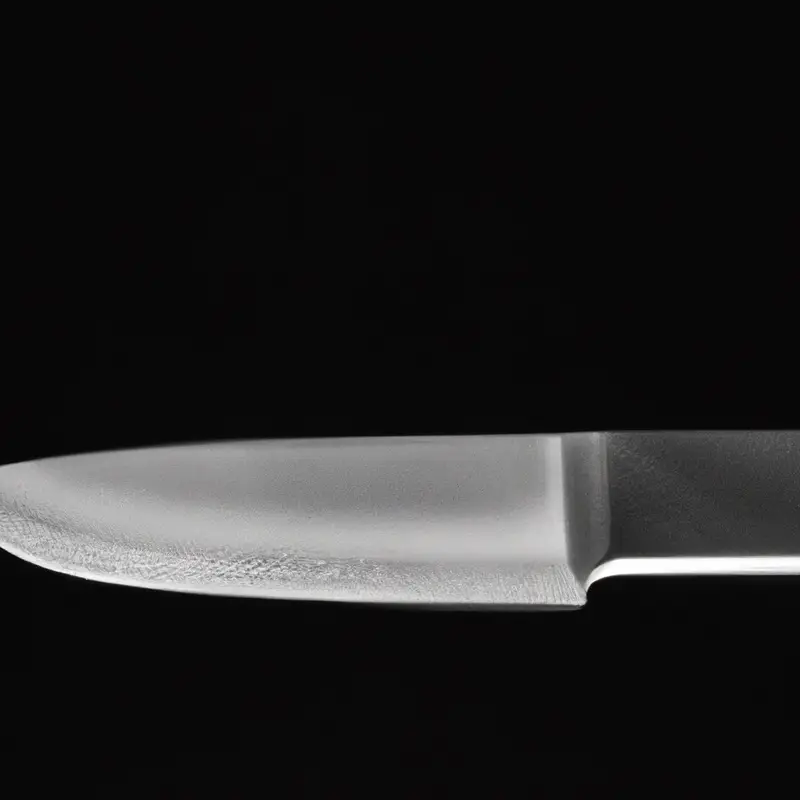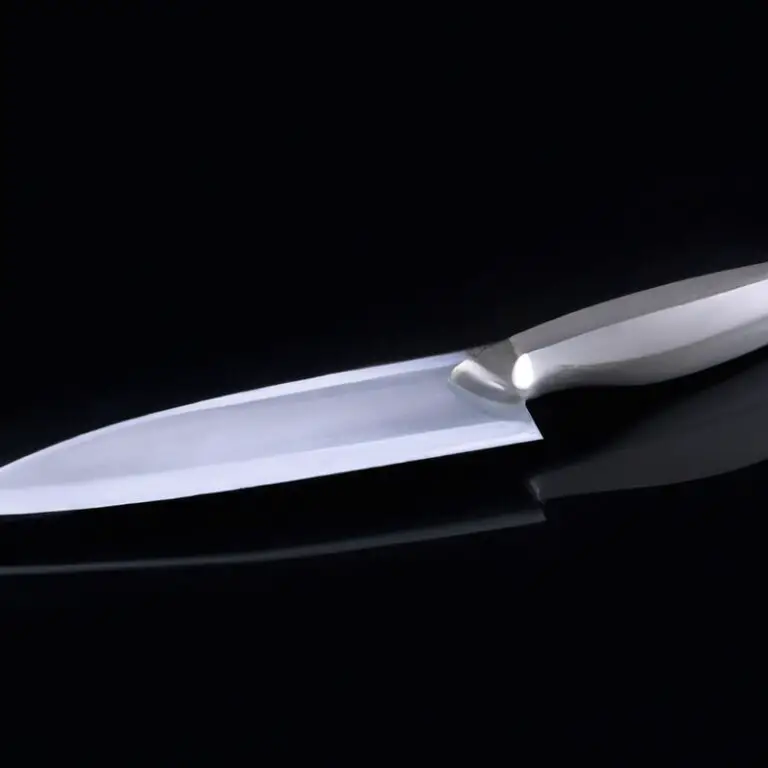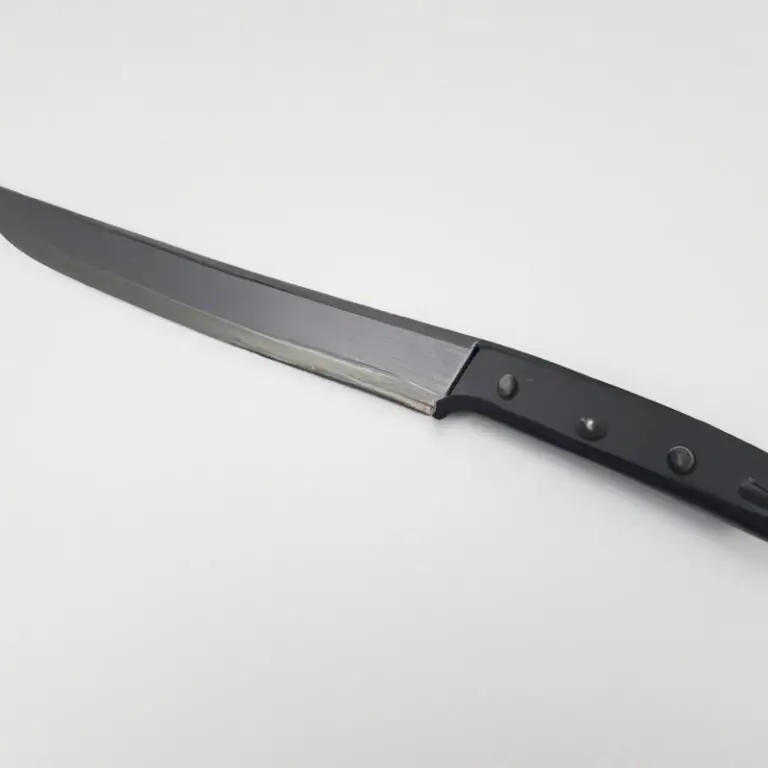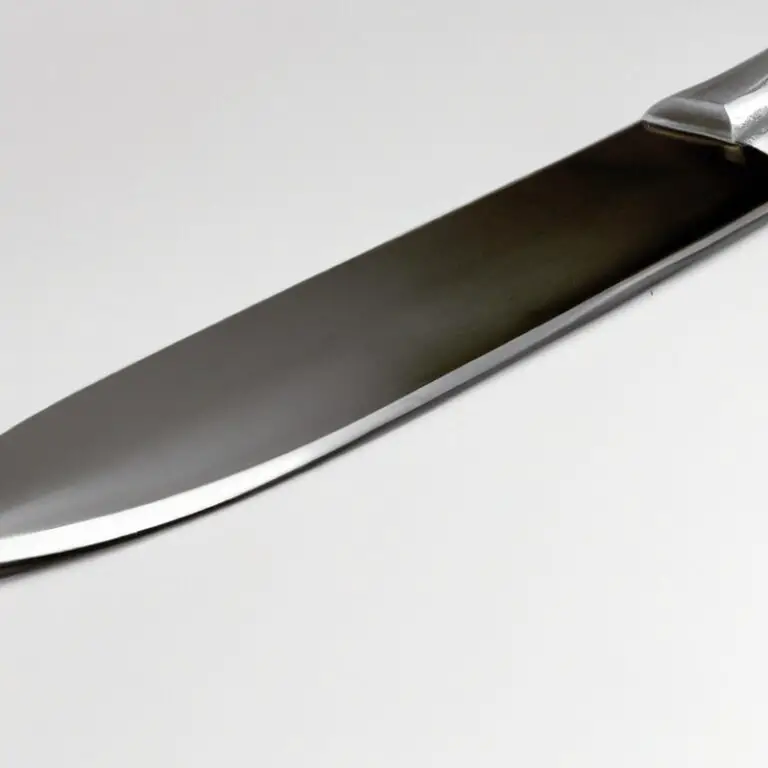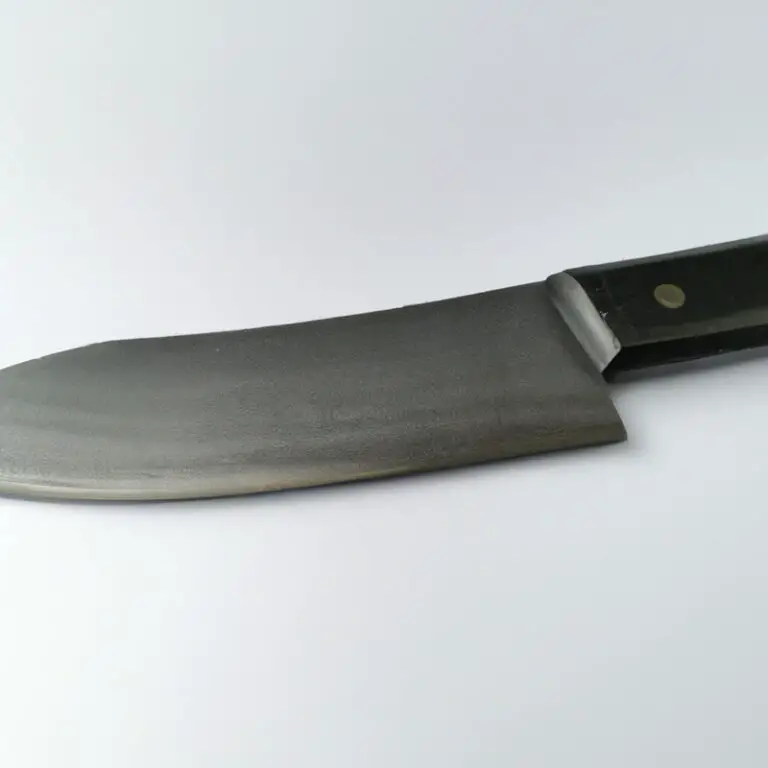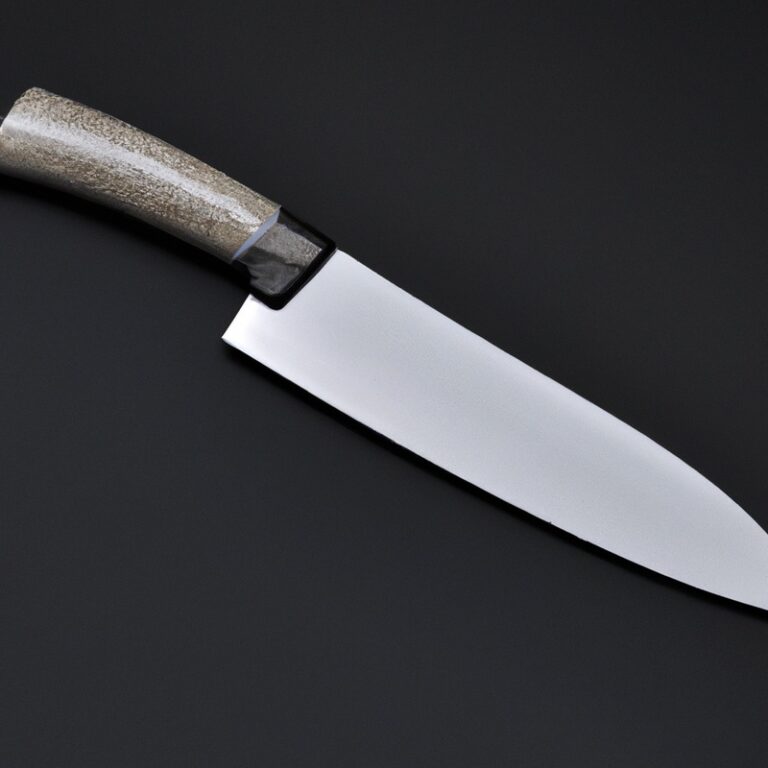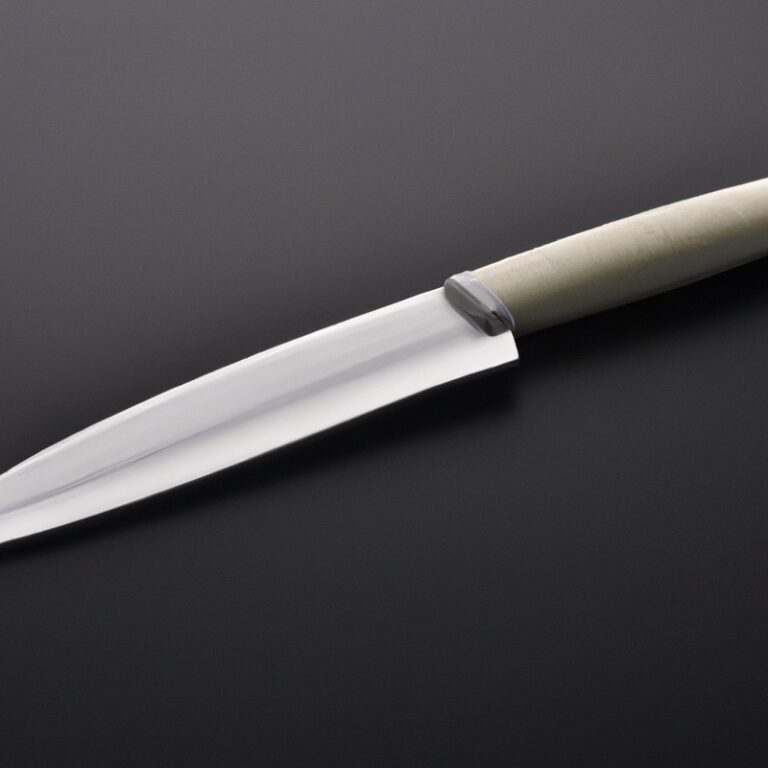What Are The Advantages Of Using a Sheath For Gyuto Knives? Safeguard Them
Key Takeaways:
- Using a sheath for Gyuto knives can protect the blade from damage and prevent accidents while handling and storing.
- Sheaths can also enhance the durability and longevity of Gyuto knives by shielding them from moisture and dust.
- Investing in customized sheaths can provide additional benefits, such as ease of transportation and aesthetics that match the knife.
- It is important to select a sheath that fits the knife properly and made from quality materials for optimal performance.
A Gyuto knife is a go-to tool in many kitchens and a valuable investment for any chef. But, how do you protect and maintain sharpness for this versatile blade?
The answer is using a sheath.
A sheath helps to shield your Gyuto knife from damage, maintains sharpness, and helps you avoid accidents in dangerous storage situations. In this article, we explore the importance of sheaths for Gyuto knives, the various types of materials and custom-fit options available, and how to best clean and maintain your sheathed knife for optimal longevity.
| Advantages of using a sheath for Gyuto knives |
|---|
| Protects the blade from damage during storage and transportation |
| Reduces the risk of accidental injury when handling the knife |
| Prevents the blade from becoming dull or rusted by contact with other knives or utensils |
| Keeps the knife clean and dust-free when not in use |
Understanding the Anatomy of a Gyuto Knife: Exploring the Basics
To get a clear understanding of the benefits of using a sheath for Gyuto knives, it’s important to explore the basics of their anatomy. A Gyuto knife is a Japanese-style chef’s knife that typically ranges in length from 7 to 9 inches.
It has a straight blade with a pointed tip, and unlike Western-style chef’s knives, it’s thinner and more lightweight.
The edge of a Gyuto knife is usually ground to a steep angle that makes it sharper and more precise. It’s important to keep the blade sharp to ensure that it performs optimally and maintains its longevity.
The spine of a Gyuto knife can be either tapered or have a flat profile, depending on the manufacturer’s design.
The handle of a Gyuto knife is typically made from wood or resin, and it’s attached to the blade with a tang. The tang is a continuation of the blade that extends into the handle, providing balance and stability.
The handle of a Gyuto knife should have a comfortable grip that allows for easy maneuverability and control.
It’s also worth noting that Gyuto knives vary in their overall weight and balance, depending on the manufacturer’s design. When choosing a sheath for your Gyuto knife, it’s important to ensure that it fits the blade snugly and securely, protecting both the blade and the user when not in use.
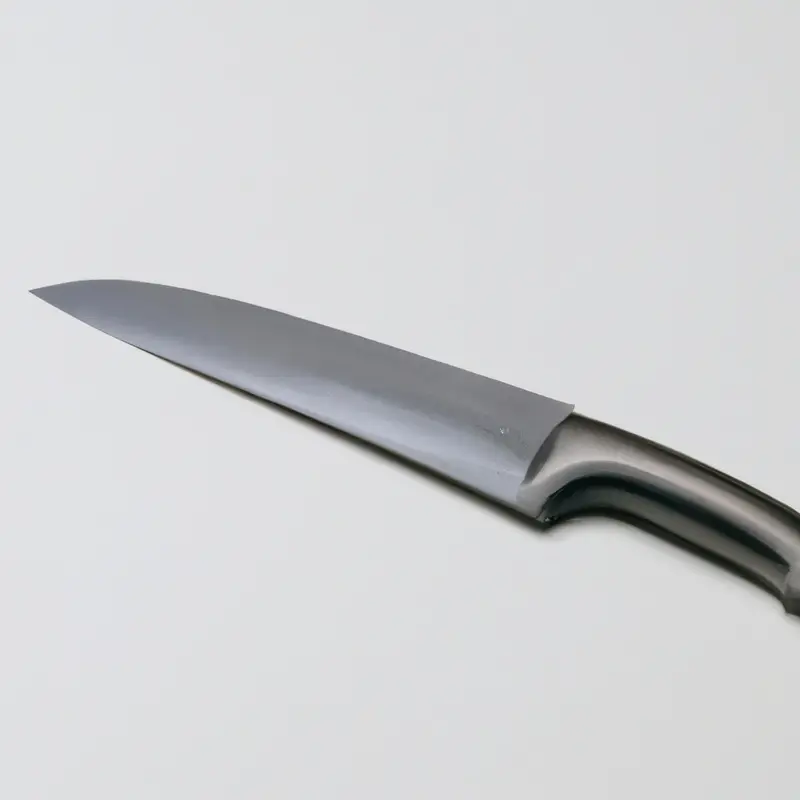
Why Protecting Your Gyuto Knife with a Sheath is Essential?
Protecting your Gyuto knife with a sheath is essential because it not only prevents damage to the blade but also ensures your safety. Without a protective sheath, your knife’s blade can get dull and nicked easily, causing damage to the blade’s edge.
Additionally, it can pose a danger to you and others as it’ll be exposed and can accidentally cut someone.
A sheath not only protects the edge of your knife but also keeps it secure when not in use. By investing in a good quality sheath, you can significantly increase the life of your Gyuto knife and ensure safe handling.
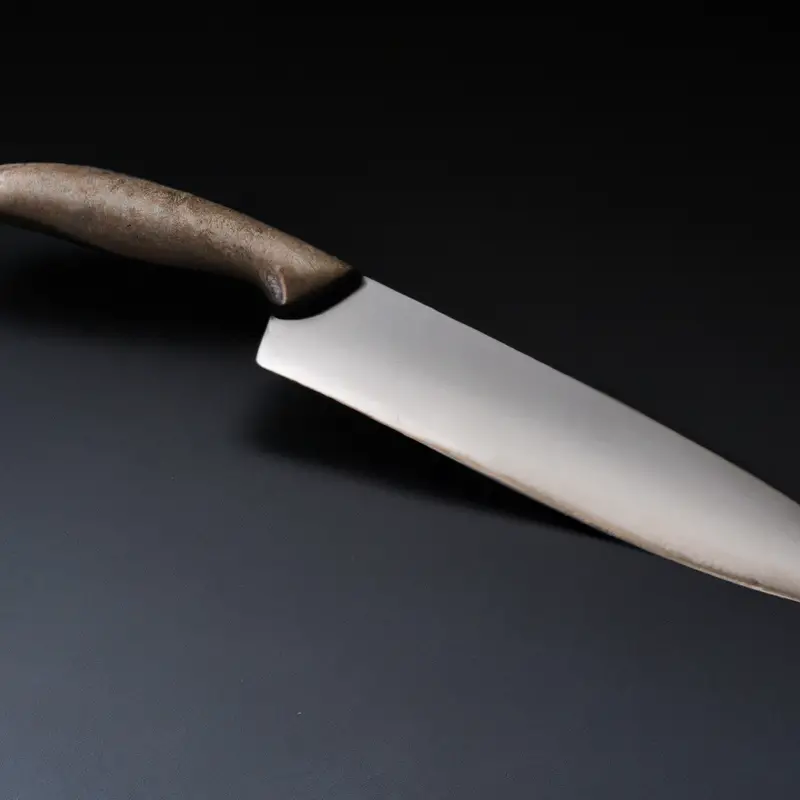
The Importance of Maintaining Sharpness of Gyuto Knives
Maintaining the sharpness of a Gyuto knife is essential for several reasons. Sharpened knives help to make precise cuts, prevent slips, and are safer to use.
Dull knives, on the other hand, require more force to make cuts, leading to a higher risk of injuries.
Regular sharpening of Gyuto knives ensures that they always perform at their best, making food preparation more efficient and effective. Moreover, sharp knives produce clean cuts, which prevent the food from becoming crushed or bruised, leading to better-looking dishes.
Proper maintenance of a Gyuto knife involves using the right sharpening equipment and techniques.
To keep the knife sharp, it is advisable to use a honing steel or whetstone to hone the blade regularly. Additionally, proper cleaning and storage can also preserve the sharpness of the blade.
Sharpening a Gyuto knife requires practice and skill.
It is advisable to seek guidance from an expert or watch instructional videos to learn the correct techniques. With proper care and maintenance, a Gyuto knife can last for years and provide excellent performance.
Types of Materials Available for Sheath: Which is the Best for Gyuto Knives?
When it comes to choosing a sheath for your Gyuto knife, there are several material options to consider. The most common materials for sheaths include leather, plastic, and wood.
However, the best material for your Gyuto knife sheath may depend on your personal preferences and how you plan to use your knife.
Leather sheaths are a popular choice due to their durability and classic appearance. They are also easy to clean and maintain.
Plastic sheaths are lightweight, affordable, and can come in a wide variety of colors.
However, they are not as durable as other materials and may not offer as much protection for your knife. Wooden sheaths are typically handmade and can be customized to fit your knife perfectly.
They are durable and offer an organic, rustic look.
However, they may require more maintenance than other materials and are not ideal for wet environments. Overall, the best material for your Gyuto knife sheath will depend on your personal preferences and how you plan to use your knife.
The Benefits of Using a Custom-Fit Sheath for Gyuto Knives
Using a custom-fit sheath for your Gyuto knife provides several benefits that can enhance your cooking experience. Firstly, it protects the blade from external damage, preventing dulling, rusting, or chipping.
Additionally, it also prevents accidental cuts or injuries while handling or storing the knife.
A custom-fit sheath ensures a perfect fit for your Gyuto knife, which prevents the blade from moving or rubbing against the sheath. This reduces friction and maintains the sharpness of the blade for longer.
It also keeps the blade well-maintained, ensuring optimal cutting and slicing.
A custom-fit sheath also provides an easy and safe storage option for your Gyuto knife when not in use. It keeps the edge of the blade protected from any potential damage caused by other kitchen utensils.
Furthermore, using a sheath for your Gyuto knife ensures that you don’t have to go hunting for the knife when you need it.
A sheath provides a secure and visible location for storing the knife, ensuring it is always within reach. Overall, investing in a custom-fit sheath for your Gyuto knife is an excellent way to protect, maintain, and prolong the life of your knife.
It also ensures safety and enhances your daily cooking experience.
Maximizing the Life of Your Gyuto Knife with a Sheath
Maximizing the life of your Gyuto knife is important, and a sheath can help with that. Not only does a sheath act as a protective barrier, but it also prevents damage caused by exposure to moisture, dirt, and other elements.
A sheath also keeps the knife’s edge sharp for a longer period.
By protecting the knife’s blade from being dulled through regular wear and tear, the sheath can extend the knife’s lifespan. To maximize the knife’s longevity even further, it is essential to select the right sheath material.
Sheaths made of breathable materials such as leather or wood are the best options for preventing moisture buildup and rusting.
Additionally, it is crucial to keep the knife and sheath clean and dry to prevent the growth of bacteria and the development of unpleasant odors.
The Importance of Hygiene When Storing Gyuto Knives
Maintaining proper hygiene when storing your Gyuto knife is crucial to ensure it remains in good condition. Food particles, oils, and moisture can accumulate on the blade and handle, leading to rust, corrosion, and bacterial growth.
To prevent this, it is essential to clean and dry the knife thoroughly before placing it in the sheath.
Additionally, it is recommended to store the knife in a dry and well-ventilated area to prevent moisture buildup. Regular maintenance and proper storage will not only ensure the longevity of your Gyuto knife but also prevent contamination and maintain food safety standards.
Are Magnetic Sheaths for Gyuto Knives Worth Investing in?
Magnetic sheaths for Gyuto knives are worth investing in if you want to ensure that your knife stays secure and protected from damage. Unlike traditional sheaths, magnetic sheaths provide a more secure and faster way of securing your knife.
They make it easy to store your knife safely, especially during transportation.
Magnetic sheaths are also convenient, as they allow for quick and effortless access to your knife. Additionally, they are durable and long-lasting, so they can provide an excellent investment for your knife in the long run.
Overall, if you want a reliable, durable, and fast way to protect your knife, magnetic sheaths are worth the investment.
How to Clean and Store Your Sheathed Gyuto Knife?
To clean and store your sheathed Gyuto knife properly, you need to follow these steps:
- Rinse the blade under running water and use a soft-bristled brush to remove any food or gunk from the knife.
- Dry the blade thoroughly with a soft and clean cloth.
- Apply a few drops of blade oil on the knife before sheathing it.
- Insert the blade into the sheath and make sure it fits snugly.
- Store the sheathed knife in a dry and cool area and away from other utensils.
Remember to avoid using harsh detergents or abrasive pads on the blade as it can damage the knife’s finish. Also, never put the sheathed knife in the dishwasher as the high temperature and strong detergents can damage both the blade and the sheath.
Regular cleaning and proper storage will increase the longevity and efficiency of your sheathed Gyuto knife.
The Impact of Weather Conditions on Sheathed Gyuto Knives
Weather conditions can have a significant impact on sheathed Gyuto knives. Exposure to humidity, extreme heat, and cold can cause damage to the blade and handle of the knife.
Moisture can lead to rust and oxidation, while extreme temperatures can cause warping and cracking of the handle.
It is essential to avoid exposing the knife to these conditions for prolonged periods. If it is necessary to store the knife in humid or cold locations, it should be thoroughly dried and oiled before placing it into the sheath.
Additionally, if the knife has been used in wet conditions, it should be dried immediately.
Protecting the knife from harsh weather conditions is critical for extending the life of the blade and maintaining its sharpness.
Final Verdict
A sheath is an essential accessory that must accompany any Gyuto knife to ensure maximum durability, safety, and longevity. Investing in high-quality, durable sheaths assures you of a longer lifespan for your Gyuto knife and limits the risk of injuries.
It’s important to regularly maintain the sharpness and hygiene of the knife, and an appropriate sheath can be a cost-effective way of achieving this.
By exploring the different types of materials available and selecting a custom-fit sheath, you can optimize the protection for your knife and maximize its service life. Remember, the combination of a high-quality sheath and a well-maintained knife will give you the best results, guaranteeing precision cuts and boosting your overall performance in the kitchen.

